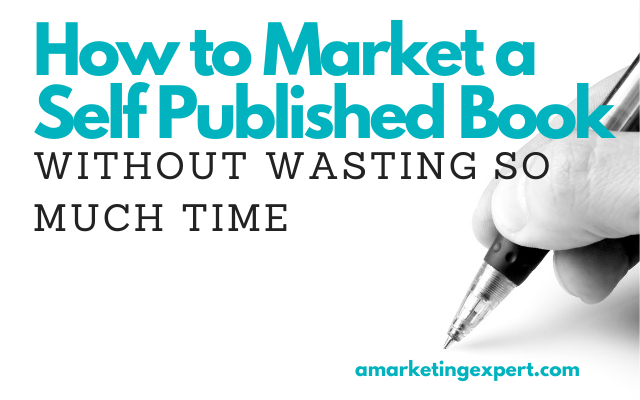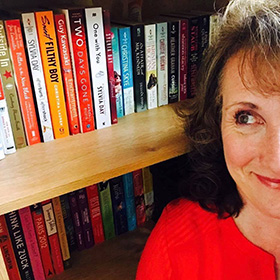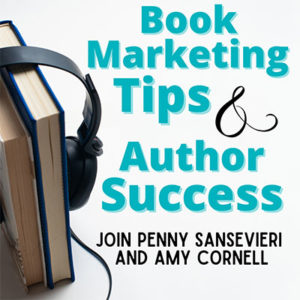Raise your hand if you often feel like you’re wasting your time with your book marketing? If you’re like most authors, I bet your hand is raised above your head and maybe even waving. Marketing a self-published book (or even one from a trade or boutique publisher) isn’t always easy. In fact, it’s often downright confusing.
Generally, the confusion comes when we don’t keep good track of our efforts, or when we try a random bunch of things because those strategies worked for someone else.
So let’s breakdown some strategies that will help save you some book marketing time and also gain you some valuable book sales momentum!
Use a Planner
We created a free book marketing planner, and it’s one of the most successful things we’ve ever done. Why? Because once authors get a feel for how planning can help them, planning becomes kind of addictive.
Whether you use our planner or one you already have on hand, taking the time to think through your approach is a critical part of book marketing. I’ll give you some strategies you can plan ahead for a little bit later in this blog post, but the planning itself is also key.
With your trusty planner, you can create a road map so that you don’t wake up every morning and wonder: What should I do today to promote my book?
Be Ridiculously Obsessed with Your Reader
I’m always surprised by how many authors launch books without knowing who they’re marketing those books to. This is a big enough issue that literally a few times a month I speak with authors who aren’t clear on who their readers are.
And it’s one thing to know that your readers are between the ages of 25 and 50, but what drives them, really? That’s where our free Reader Profile can help out.
Being obsessed with your reader means knowing what drives them – and what doesn’t. This knowledge should impact your book marketing choices, book pricing, and cover design.
If you aren’t starting with your reader as the center point of all that you’re doing, then you’re quite literally wasting not only your time on book marketing, but probably your money, too.
So how can you get to know your reader better? Well, starting with a reader profile is one way. Another is to read some reviews of books similar to yours to see what readers say they found pivotal, important, or unnecessary in those books.
If you want to take this a step further, click on a reviewer’s profile and see what else they’ve reviewed. You might gather some good information about who they are outside of their reading world – and/or you’ll discover other books they’ve reviewed, which might potentially offer further insights.
Understand Your Genre
Understanding your genre is different than understanding your reader. Each genre makes specific demands of authors, and you want to make sure you meet those standards.
Key into subgenres: every genre has subgenres, regardless of whether the category is fiction or non-fiction. If your book is fiction, particularly genre fiction, you might want to consider the important tropes in your genre and the way they do – or don’t – show up in your work.
Readers have very specific needs and expectations, and understanding the needs and check points of your genre is important. If you’re marketing a self published book that doesn’t key directly into what your reader wants and expects, you’ll wind up with bad reviews and low book sales.
You may be thinking, well, at least I sold a book! I won’t dispute you. But according to Digital Book World, 95% of books are sold through word of mouth.
If your reader buys and is then disappointed by your book, guess what? They sure aren’t sharing it with their friends.
Earlier in this post, I talked about the importance of planning. One of the biggest reasons to make this a priority is so that you can keep ahead of strategies you have coming up.
But another important reason to use a planner and plot your strategies is that if and when something works well, you have a record of what you did. You don’t want to keep asking the question of how to market a self published book without writing down some of your answers!
All too often, authors run promotions – or ads or campaigns – and have no record of what they did, specifically, and then they are at a loss when they try to figure out how to recreate whatever worked well.
Not only do planners offer long-term benefits to an author trying to figure out how to market a self published book, but they can also be a fun exercise. Let’s look at some cool things you can plan out!
- Limited time discount promotions. Plan out the dates, and if you have a backlist, rotate books in and out of these promotions.
- Social media themes. Come up with topics that align with your expertise or interests and post about them on a consistent schedule. Plan theme days and create images so that you have them ready.
- Social media images. Collect 15-20 images that show off your brand: your workspace, selfies, your dog (or other furry friends), experiences you’ve had, books you love, products you love, etc. Edit them all in one sitting so they have similar filters; bonus points for adding your website URL, social handle, or custom hashtag to each image.
- Newsletter ideas. Incorporate your publishing schedule, cover reveals, limited-time discounts, etc. to plan out the bulk of your newsletter content in advance.
- Goodreads giveaways. Set these up well in advance to take the pressure off; bonus points if you plan a discount promotion immediately following the giveaway to entice those who didn’t win a book into buying one.
- Blogger pitching. Pitch three to five new bloggers a month, but make it easier on yourself by researching and finding 15-20 all at one time.
- Reviews reminders. Plan out calls for reviews to everyone in your network. People mean well, but they forget so reminders are key. Every month you forget to ask for reviews could be a critical blow to your sales conversions on Amazon.
Book marketing doesn’t have to feel like a waste of time. As we’ve seen in the points above, bad book marketing is mainly the result of a lack of focus or an incomplete understanding of what drives your readers and your genre.
Your time and money are precious resources – stop wasting them and start putting them to work with a tightened focus. The more you can zero in, create a plan, and speak to your reader, the faster your book will ascend the bestseller list.
Good luck!
Resources and Free Downloads
Monthly Book Marketing Planner






Hi Penny,
A very interesting and informative newsletter. Yes, marketing my book is the bane of writing my poems. To be totally honest, I probably couldn’t market a beer in a pub. And, as I’m on a pension, I don’t have the funds (I think) necessary to pay someone to do it for me. So, I’m writing letters to various bookshops here in Australia, mainly New South Wales. I have approached a few personally but only one has taken the book on and stocked it the local bookshop.
Kind regards,
Richard Forbes (pseud. Richard Alexander)